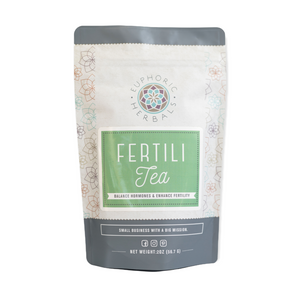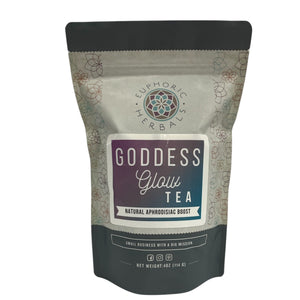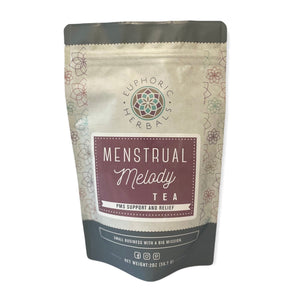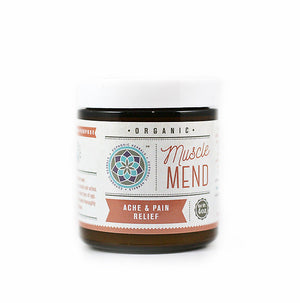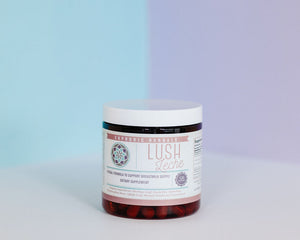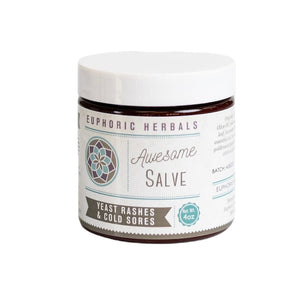Does your brain ever feel tired, unfocused, or fuzzy? There's a lot that affects the health of our minds, so it's not surprising that they eventually start to feel less sharp than they used to. But that doesn't mean you have to keep going through life in a fog!
There are many lifestyle factors involved in brain health: sleep, diet, exercise, and stress (the big one) to name a few. Focusing on making any of those areas better will help your mind, but there are also some powerful herbs for brain health that you can make use of, too.
Some herbs can increase your mental energy. Others boost mood, memory, focus, or clear-thinking. Still others are known as herbs of longevity, which means they help protect your brain and keep it healthy as you age.
Here's a look at the top herbs to support your mind and what they can do for you.
Top Herbs for Brain Health & Function
Ginkgo
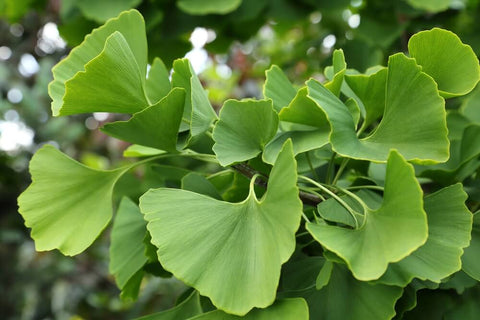
Ginkgo biloba is one herb that has to be included on any list of natural brain boosters. It boosts the overall function of your brain, including memory, and can even give you a greater sense of well-being. (1)
Ginkgo has also been studied for its potential to help treat cognitive disorders like Alzheimer's. Results have been positive, and it appears to be especially effective when used alongside conventional treatments. (2)
You can take a ginkgo extract daily for overall brain health.
Gotu Kola
Gotu kola (Centella asiatica) is one of the most highly respected herbs for brain health in Ayurveda and traditional Chinese medicine. It's usually taken as a tonic and is considered an herb of longevity.
Research confirms that gotu kola can help with focus, memory, alertness, mental stress, and clear thinking. Traditional practitioners recommend it in cases of brain fog and memory loss. Studies show that it may also help treat Alzheimer's symptoms. (3)(4)
Don't expect an immediate effect from gotu kola. It's meant to be taken regularly and will help your brain over time.
Bacopa
Bacopa (Bacopa monniera), also known as Brahmi and water hyssop, is another herb for the mind commonly used in Ayurvedic medicine. It can help improve memory, focus, learning, and general mental function. Studies indicate that it may relieve stress, anxiety, and depression as well. (5)
Bacopa also contains antioxidants that have neuroprotective properties. This protects the overall health of your brain and may even help with diseases like Alzheimer's. (6)
Note: There's also an ornamental plant called bacopa (Sutera cordata), which is completely different from the herb bacopa.
Rosemary
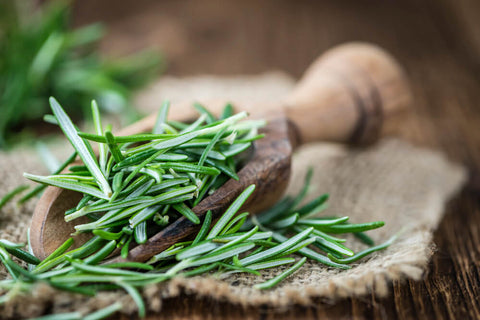
Rosemary (Salvia rosmarinus) has famously been associated with remembrance in Shakespeare's Hamlet. It's also been considered a brain tonic by herbalists for many years. The main benefits are thought to be for memory, focus, and to prevent cognitive decline.
Studies so far back up rosemary's potential for brain health. Low doses of the herb were shown in one study to slow or stop cognitive decline in an elderly population. Taking or inhaling the herb has also been shown to boost memory, alertness, and mood. (7)(8)
Add fresh or dried rosemary frequently to your cooking, make a tea with it, or try an extract to boost your mind.
Sage
Sage (Salvia officinalis) is often referred to as a "sister herb" of rosemary because the two are so closely related. Like rosemary, sage contains rosmarinic acid, which is thought to be one of the main compounds that makes both of these herbs great for brain health.
You can take sage to boost memory and focus. It's also been the subject of research studies that explore its potential for treating symptoms of mild to moderate Alzheimer's. A few trials have shown that it may help with dementia as well. (9)(10)
Clary sage (S. sclarea) is a specific type of sage with its own mind-boosting properties. Used as an herb or essential oil, it eases stress, clears the mind, and lifts your mood.
To use common sage, try using the dried herb to make a tea or tincture.
Eleuthero Root
Eleuthero (Eleutherococcus senticosus), sometimes called Siberian ginseng, is an adaptogen that helps your mind and body cope with stress. Over time, it can restore mental energy, alleviate mental fatigue, and recharge your adrenal glands. (11)
Along with anti-stress and anti-fatigue properties, studies show that adpatogens like eleuthero likely have antidepressive and neuroprotective effects as well. (12)
As a dried herb or an extract, eleuthero acts as a mild stimulant. However, you can also take it as a tonic herb, especially to recover from mental fatigue and stress. Try it in this Adrenal Love tea to strengthen your mind and nervous system.
Ginseng
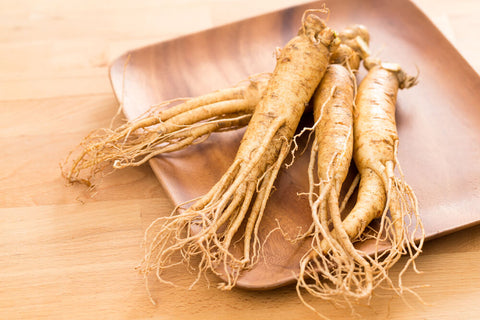
There are two main types of true ginseng: Asian ginseng (Panax ginseng) and American ginseng (P. quinquefolius). Both are adaptogenic herbs, like eleuthero, and both can boost brain function and fight mental fatigue.
Research is confirming that ginseng is protective of brain health and can improve cognitive function. It can specifically boost your mental energy, help you think more clearly, and even improve your mood. (13)(14)
Taking ginseng will also improve your physical energy and can reduce stress as well. It's most often taken daily as an extract.
Peppermint
Peppermint (Mentha piperita) is a little different than the other herbs for brain health on this list. While many natural brain boosters do their best work over time, peppermint can give you an instant invigorating effect.
Sometimes referred to as the "green energy" herb, peppermint boosts your mental energy without using up any energy reserves. Even using its refreshing scent in aromatherapy can improve focus, mental alertness, and clear thinking. (Gladstar. Medicinal Herbs: A Beginner’s Guide, pg. 184)
As a bonus, peppermint also has pain-relieving properties that are especially helpful for headaches. (15)
Drinking peppermint tea regularly is a great way to improve your mental energy. You can also diffuse or apply the essential oil as needed. Even simply crushing fresh mint leaves will instantly lift your mood, reduce stress, and refresh your brain.
Turmeric
Turmeric (Curcuma longa) has become a popular herb because it calms inflammation, but it also has brain-boosting effects.
Curcumin, the main active compound in turmeric, boosts a hormone called brain-derived neurotrophic factor (BDNF). In studies, brain diseases like Alzheimer's and depression are linked to decreased levels of BDNF. (16)(17)
Because of this, turmeric has the potential to protect your brain from degeneration and may also help with symptoms of cognitive disorders. It may even improve your memory. (18)
To increase its effectiveness, take turmeric with black pepper in something like this Turmeric Chai Tea.
Ashwagandha

Ashwagandha (Withania somnifera) is another adaptogenic mind-booster. It's been used since ancients times in Ayurvedic medicine as a tonic for mental health and longevity. Like other adaptogens, it has anti-stress properties and works best when taken over a long period of time. (19)
Research indicates that supplementing with ashwagandha for 8-12 weeks can improve memory, focus, mental alertness, sleep quality, and overall brain function. (20)
You can take ashwagandha as an extract, powder, or in capsule form.
Mushrooms
Mushrooms might seem like a strange addition to a list of herbs for brain health, but medicinal varieties actually act as adaptogens to support your mind and body.
Lion's mane mushrooms are one example. They contain two compounds called hericenones and erinacines that stimulate the growth of brain cells. In studies, lion's mane has shown benefits for improving mental function and potentially protecting against memory loss. (21)(22)
Reishi is another medicinal mushroom with neuroprotective properties. It can help prevent cognitive decline and has shown an ability to relieve depression as well. (23)(24)
Other mushrooms that can help with stress and brain function include cordyceps, chaga, and turkey tail.
Boost Your Mind with Herbs for Brain Health
If you feel like your brain could use a little help, give it some support with any of these herbs. Many of them also work well when combined.
Get a combination of medicinal mushrooms, ginkgo, gotu kola, and bacopa in this MycoBotanicals Brain supplement. Or try the combined forces of gotu kola, rosemary, and sage in this Brain and Memory extract.
Don't forget that most of these herbs take a little while to do their best work. Take them daily for at least a few weeks or months to really evaluate your results. Your mind will let you know when you've found something that works!






















































